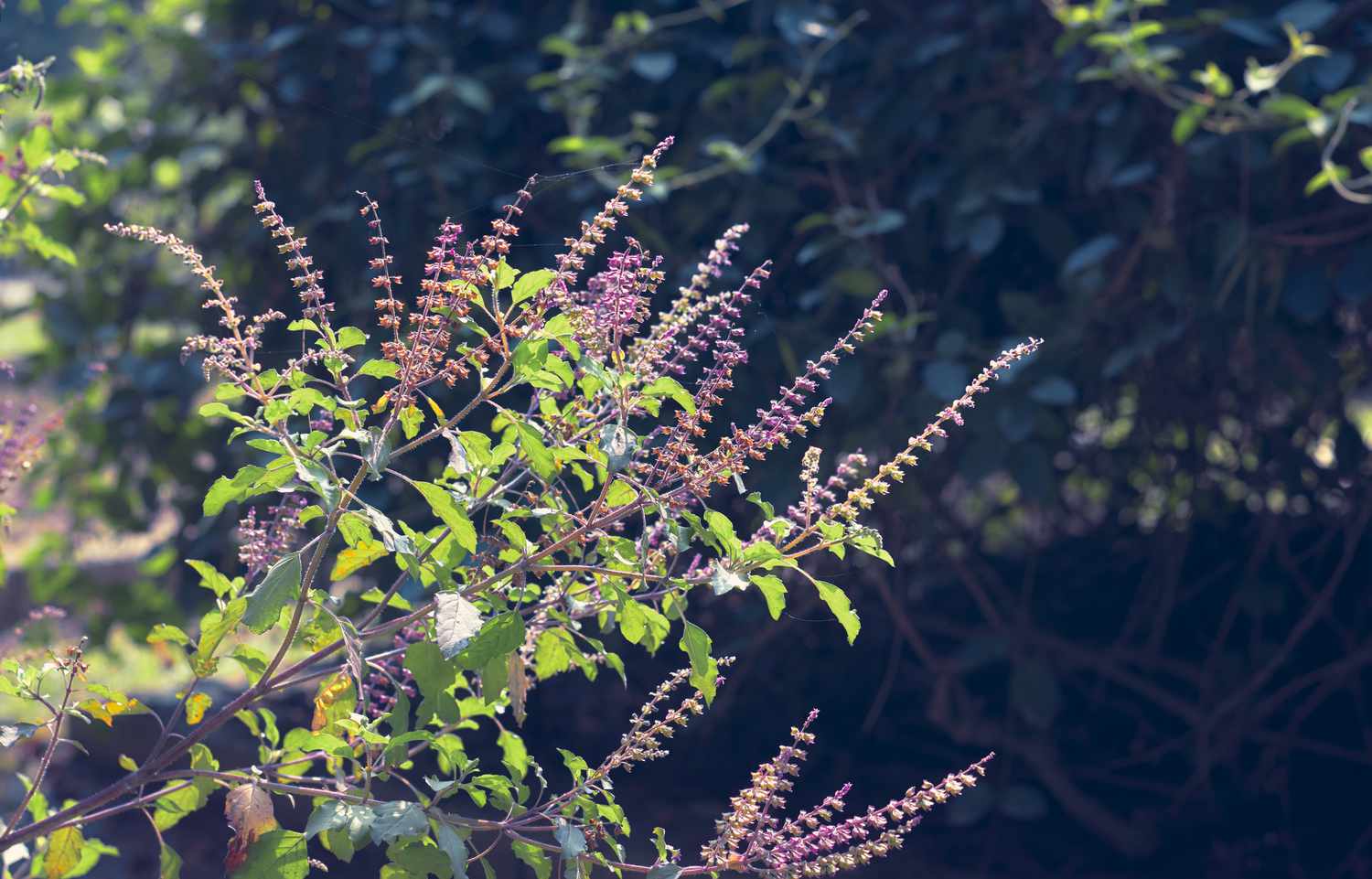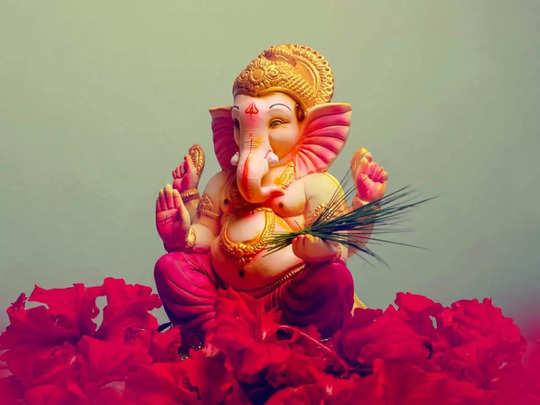
In Hinduism, the Tulsi plant is regarded as the holiest of all plants. The Tulsi plant is regarded as a threshold point between heaven and earth. A traditional prayer narrates that the creator-god Brahma resides in its branches, all Hindu pilgrimage centres reside in its roots, the Ganges flows within its roots, all deities are in its stem and its leaves, and that the most sacred Hindu texts, the Vedas are found in the upper part of the holy basil’s branches
A person who waters and cares for the Tulsi daily is believed to gain moksha (salvation) and the divine grace of Vishnu, even if he does not worship it. Traditionally, the daily worship and care of the plant is the responsibility of the women of the household. Though daily worship is prescribed, Tuesdays and Fridays are considered especially sacred for Tulsi worship.
Rituals involve watering the plant, cleaning the area near the plant with water and cow dung (considered sacred) and making offerings of food, flowers, incense, Ganges water, etc. Rangoli (decorative designs) of deities and saints are drawn near its foot. Devotees pray to Tulsi and circumbulate the plant while chanting mantras. The Tulsi plant is often worshipped twice in a day: in the morning and in the evening, when a lamp or candle is lit near the plant.
Yes, you can keep a Tulsi (Holy Basil) plant inside your house. Tulsi is considered a sacred plant in many cultures and is believed to bring positive energy. Just ensure it gets enough sunlight and water, and it can thrive indoors.
Tulsi (Holy Basil) is a revered herb in Ayurveda and has numerous potential benefits:
1. **Medicinal Properties:** Tulsi has antimicrobial, anti-inflammatory, and antioxidant properties, which can help boost the immune system and fight infections.
2. **Stress Relief:** It is considered an adaptogen, helping the body adapt to stress and reduce its negative effects on both the mind and body.
3. **Respiratory Health:** Tulsi is known to be beneficial for respiratory conditions like asthma and bronchitis due to its anti-inflammatory and bronchodilator properties.
4. **Digestive Health:** It can aid in digestion, reduce bloating, and alleviate stomach discomfort.
5. **Heart Health:** Some studies suggest it may help lower blood pressure and reduce cholesterol levels, potentially benefiting heart health.
6. **Anti-diabetic:** Tulsi may help regulate blood sugar levels in people with diabetes.
7. **Skin Health:** It can be used topically for various skin issues, as it has antibacterial and antifungal properties.
8. **Anti-cancer Properties:** Some research suggests that Tulsi may have potential anti-cancer properties, although more studies are needed in this area.
9. **Anti-inflammatory:** It can help reduce inflammation and associated conditions.
10. **Adaptogenic:** Tulsi helps the body adapt to various stressors, both physical and mental.
Remember, while Tulsi has many potential benefits, it’s important to consult with a healthcare professional before using it as a treatment for any specific medical condition. Additionally, pregnant or breastfeeding women and those taking certain medications should use it with caution or as advised by a healthcare provider.
In Vastu Shastra, the ancient Indian science of architecture and design, Tulsi (Holy Basil) is considered a sacred plant and is associated with several positive benefits when placed in the home or garden:
1. **Positive Energy:** Tulsi is believed to emit positive energy and purify the surroundings. It is thought to ward off negative energies and promote harmony within the home.
2. **Spiritual Significance:** Tulsi is considered a holy plant in Hinduism and is often associated with the goddess Tulsi. Having a Tulsi plant in your home is believed to bring spiritual blessings and protection.
3. **Health and Well-being:** It is said that the presence of Tulsi can have a positive impact on the health of the family members. Inhaling the fragrance of Tulsi leaves is thought to have therapeutic effects.
4. **Ward Off Evil:** Tulsi is believed to act as a protector and guard against evil forces and negative influences in the house.
5. **Prosperity:** Some Vastu experts suggest that having a well-maintained Tulsi plant can attract wealth and prosperity to the home.
6. **Marital Bliss:** In some traditions, the Tulsi plant is seen as a symbol of love and devotion. It is believed to strengthen the bond between married couples when placed in the home.
When placing a Tulsi plant in your home according to Vastu principles, here are some guidelines:
– Ideally, it should be placed in the North, Northeast, or East direction of the house or garden.
– The Tulsi plant should be well-maintained and kept clean.
– It is best to have a separate area designated for the Tulsi plant rather than placing it in the center of the house.
– Water the plant regularly and offer prayers or worship it with devotion, following your religious or spiritual traditions.
https://youtu.be/Q32a_fQQwyY?si=9mt-q6LO-zzGkZNP
While these Vastu guidelines suggest the placement of Tulsi plants for positive energy and well-being, it’s important to remember that individual beliefs and practices may vary. It’s essential to approach Vastu principles with respect for your personal beliefs and traditions.










